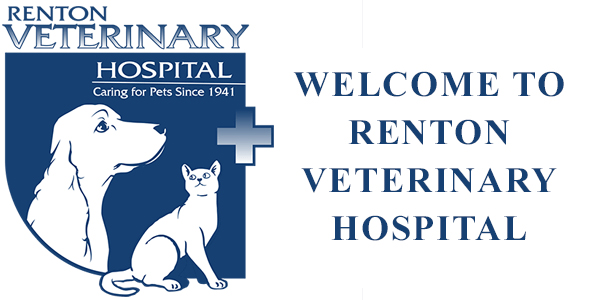We try to emphasize the importance of pet dental health throughout the year however February gives us an opportunity to highlight specific aspects of dental assessment, treatment and preventative care.
Good oral health is more than just a pretty smile! And bad breath isn’t just stinky, it’s a sign of active infection that threatens probably. Poor dental hygiene can put your pet’s health at risk. Did you know that 85% of pets have periodontal disease by age 3? “Dog breath”—or a cat with a foul-smelling mouth—can be a sign of dental conditions. Periodontal disease not only makes eating a meal painful, but it sends a constant stream of bacteria into your pet’s body. If left untreated, you may put your pet at risk for greater problems such as periodontitis or heart disease.
Brushing your dog’s teeth isn’t the funniest activity in the world, nor is it going to be the highlight of your day, but it isn’t that bad and Home dental care and routine cleanings can help prevent periodontal disease. Brushing is the single most effective thing you can do to help keep your pet’s teeth healthy. Ask us for tips on how to brush your pet’s teeth and other suggestions for preventative oral health care.
Additionally, a complete oral examination can detect hidden health problems. Even if your pet’s breath smells fine, there could still be dental conditions and oral pain that are hard to detect without a complete veterinary exam or dental radiographs.
Professional Cleanings
It’s impossible to brush my dog’s teeth, so what can I do? You are also probably thinking right now, “Fido and Fluffy can’t even sit still long enough for an Instagram photo, how are they going to sit through a whole dental exam?”
We know that most dental disease occurs beneath the gum line and a professional dental cleaning under anesthesia is required to remove plaque and tartar from a pet’s teeth. General anesthesia is perfectly safe for pets when done correctly by a professional The benefits of complete dental care greatly outweigh the concerns of anesthesia, no matter the age of your pet. As a matter of fact, when a geriatric pet receives a complete oral overhaul – including a cleaning, medications to treat the infection, and extractions of the really bad teeth — they often act like puppies again because their chronic pain is finally gone.
In addition, we always make sure that your dental care under anesthesia is with professionals and is supervised by a qualified veterinarian, even if it’s a simple cleaning.
Addressing your pet’s oral health and dental conditions is an ongoing commitment and part of ensuring the healthiest, happiest life for them.
We are committed to your pet’s health and wellness, and we know that you are as well!
Additional Information and Tips: AVMA.org

